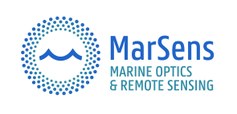Marine optics and Remote Sensing
About
The Marine Optics and Remote Sensing (MarSens) Research Group investigates the vital link between marine ecosystems and ocean carbon cycling using innovative remote sensing and in situ observation technologies. Our research covers coastal and open ocean environments and spans seasonal to generational timescales, providing unique insights into the ocean-climate connection.
MarSens' research lines
- Ocean Colour Science: Development and application of algorithms for retrieving essential ocean and climate variables, processing satellite data, performing above-water radiometry, and conducting fundamental studies on light-matter interactions in marine environments.
- Marine Biogeochemistry : Investigating biologically-mediated marine carbon storage, with a focus on the spatial and temporal dynamics of the biological carbon pump.
- Technological innovation : Designing autonomous sensors for particulate carbon and creating tailored observation systems to enhance marine biogeochemistry monitoring
Scanning Electron Microscopy images depicting the diversity in sizes and shapes of marine particles (collected from the southern North Sea). (A) Large diatom chains (microphytoplankton), large diatoms, and mineral particles. (B, C, D) Smaller particles: nanophytoplankton, and small minerogenic particles. (C) diatoms attached to a mineral particle. (D) coccolithophores.
Website
Contact information
Prof. Griet Neukermans
Ghent University, Department of Biology, Marine Optics and Remote Sensing (MarSens)
Campus De Sterre - S8, Floor 3
Krijgslaan 281
9000 Gent
Belgium
Griet.Neukermans@UGent.be

